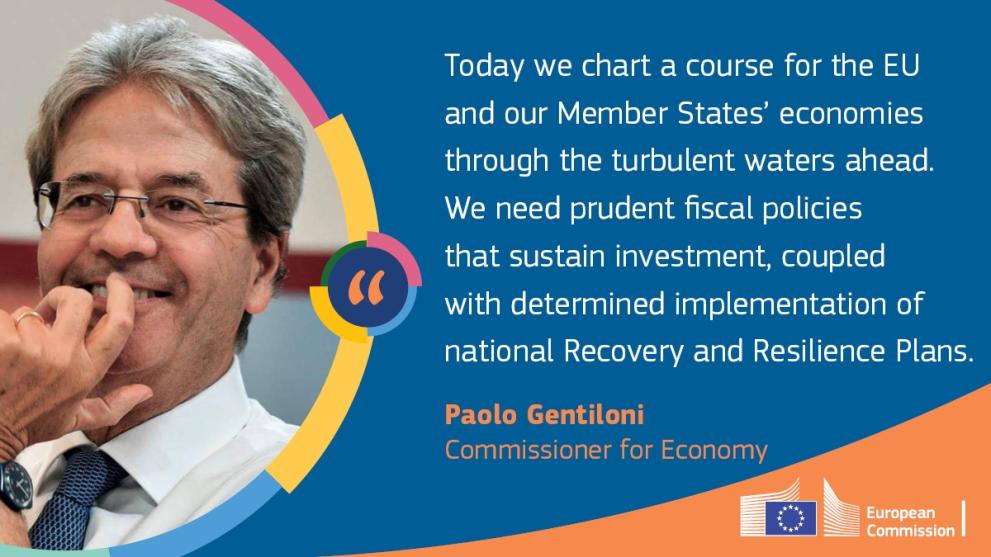
The Autumn package draws on the Autumn 2023 Economic Forecast which showed that the EU economy continues to be resilient in the face of the multiple shocks endured in recent years, but that it has lost growth momentum in 2023 in a context of high inflation and tighter financing conditions, with only a moderate uptick in growth expected in 2024.
The EU is facing a number of important structural challenges, including low productivity growth, the green and digital transitions, ageing and social inclusion, that need to be tackled in order to stay on the path of sustainable competitiveness. Disruptive geopolitical events have also demonstrated the need for the EU to remain competitive in a global market, while ensuring that no one is left behind.
Economic policy coordination through the European Semester will help Member States achieve these objectives by setting priorities and providing clear and well-coordinated policy guidance for the coming year.
With this comprehensive analysis and policy guidance, we chart a course for the EU and our Member States’ economies through the still turbulent waters ahead. We have assessed the 2024 draft budgetary plans against the recommendations adopted in the spring, with a focus on limiting expenditure growth, preserving public investment and phasing out energy support measures. This is a time for prudent fiscal policies that complement the ECB’s efforts to fight inflation and thus support purchasing power. Yet it is also essential that governments pursue the reforms and investments needed to enhance our competitiveness and deliver sustained and sustainable growth. From this standpoint, determined implementation of the national Recovery and Resilience Plans remains of fundamental importance.
Paolo Gentiloni, Commissioner for Economy
Annual Sustainable Growth Survey
This year's Annual Sustainable Growth Survey puts forward an ambitious agenda to further strengthen a coordinated EU policy response to enhance the EU's competitiveness through a green and digital transition, while ensuring social fairness and territorial cohesion.
The four priorities under the European Semester remain: promoting environmental sustainability, productivity, fairness, and macroeconomic stability, with a view to fostering competitive sustainability. This approach is in line with the UN Sustainable Development Goals, which are an integral part of the European Semester.
Addressing structural and emerging challenges, to fully realise each Member State's competitiveness potential will be one of the focal points of this year's cycle. This includes removing bottlenecks to private and public investment, supporting a conducive business environment, and ensuring the development of the skills required for the green and digital transitions. In this respect, the 2024 cycle of the European Semester will specifically focus on synergies and complementarities between the implementation of the recovery and resilience plans and the Cohesion Policy programmes, and on identifying areas with further investment and reform needs at national and regional level.
Moreover, in 2024, the general escape clause of the Stability and Growth Pact is set to be deactivated. Fiscal policy needs to support monetary policy in reducing inflation and safeguarding fiscal sustainability, while providing sufficient space for additional investments and supporting long-term growth.
Opinions on the 2024 Draft Budgetary Plans of euro area Member States
The European Commission also assessed the consistency of the draft budgetary plans for 2024 with the fiscal Council Recommendations of July 2023.
Overall, the Commission is of the opinion that the draft budgetary plans of Cyprus, Estonia, Greece, Spain, Ireland, Slovenia and Lithuania are in line with these Council Recommendations. The draft budgetary plans of Austria, Germany, Italy, Luxembourg, Latvia, Malta, Netherlands, Portugal and Slovakia are not fully in line with the Council Recommendations. The draft budgetary plans of Belgium, Finland, France, Croatia risk not being in line with the Council Recommendations.
For more information
European Commission press release
Questions and answers on the 2024 European Semester Autumn Package
Details
- Publication date
- 21 November 2023
- Author
- Representation in Ireland
